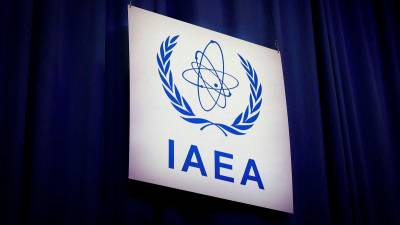UNITED NATIONS: The United Nations will reinstate sweeping sanctions on Iran after nuclear diplomacy failed, with Tehran rejecting what it calls an unacceptable US demand to hand over its enriched uranium.
Iranian President Masoud Pezeshkian slammed a reported American proposal for Tehran to relinquish all its enriched uranium in exchange for a three-month reprieve from sanctions.
“This is by no means acceptable,” Pezeshkian told reporters in New York before departing for Tehran, characterising the US position as an attempt to place a noose around Iran’s neck.
He previously stated that France had made a similar proposal offering only a one-month delay from the sanctions snapback.
European powers triggered the sanctions mechanism a month ago, accusing Iran of failing to comply with nuclear programme requirements after it launched countermeasures responding to Israeli and US strikes in June.
The sanctions will reinstate a global ban on dealings with entities linked to Iran’s nuclear and ballistic missile programmes effective from 0000 GMT Sunday.
Iran recalled its envoys from Britain, France and Germany for consultations following the European decision to activate the snapback mechanism.
Pezeshkian reiterated that Iran has no intention of developing nuclear weapons, accusing Washington and Israel of using pressure to try to topple the Islamic republic.
Talks also involved US Special Envoy Steve Witkoff, who said Washington did not want to harm Iran and remained open to further discussions.
Pezeshkian dismissed the American diplomat as unserious, claiming he backtracked on earlier understandings that collapsed after Israel’s military campaign against Iran in June.
Russia’s deputy ambassador Dmitry Polyansky said Moscow considers the reimposition of sanctions null and void, reflecting Tehran’s key international partnerships.
Russia and China failed to muster enough Security Council votes to delay the sanctions snapback until April.
The United States already maintains unilateral sanctions on Iran and has tried to force all countries to stop buying Iranian oil, though Chinese companies have defied this pressure.
President Donald Trump imposed a maximum pressure campaign after withdrawing from the 2015 nuclear agreement, which had offered sanctions relief for nuclear programme curbs.
The International Crisis Group noted that Iran seemed dismissive of the snapback after learning to cope with US sanctions, but warned it would compound existing economic struggles.
Israeli Prime Minister Benjamin Netanyahu urged no delay in the sanctions snapback and hinted Israel was willing to strike Iran’s nuclear programme again.
Pezeshkian said Iran would not retaliate by leaving the nuclear Non-Proliferation Treaty, warning that unnamed powers sought a superficial pretext to set the region ablaze. – AFP
